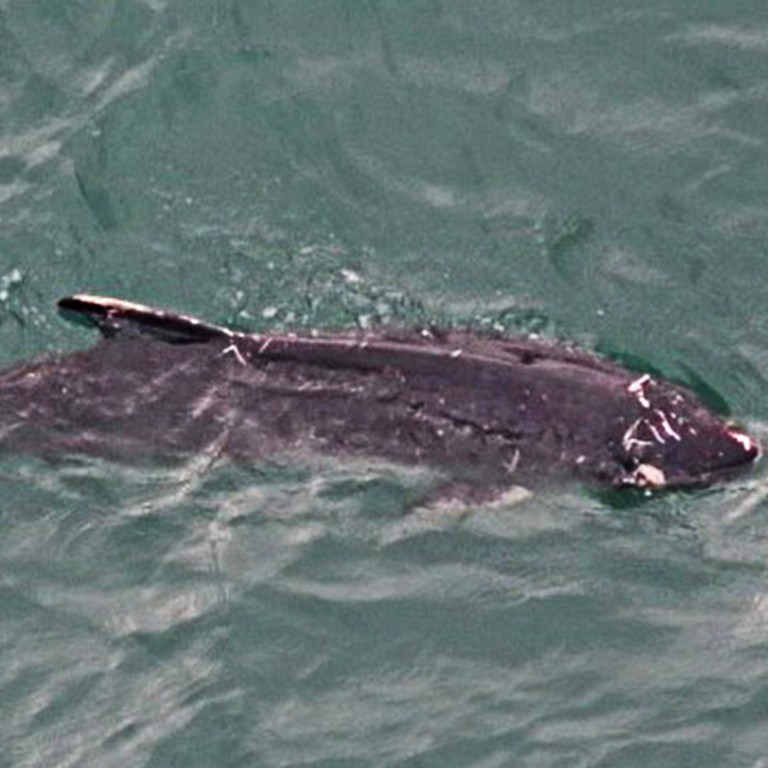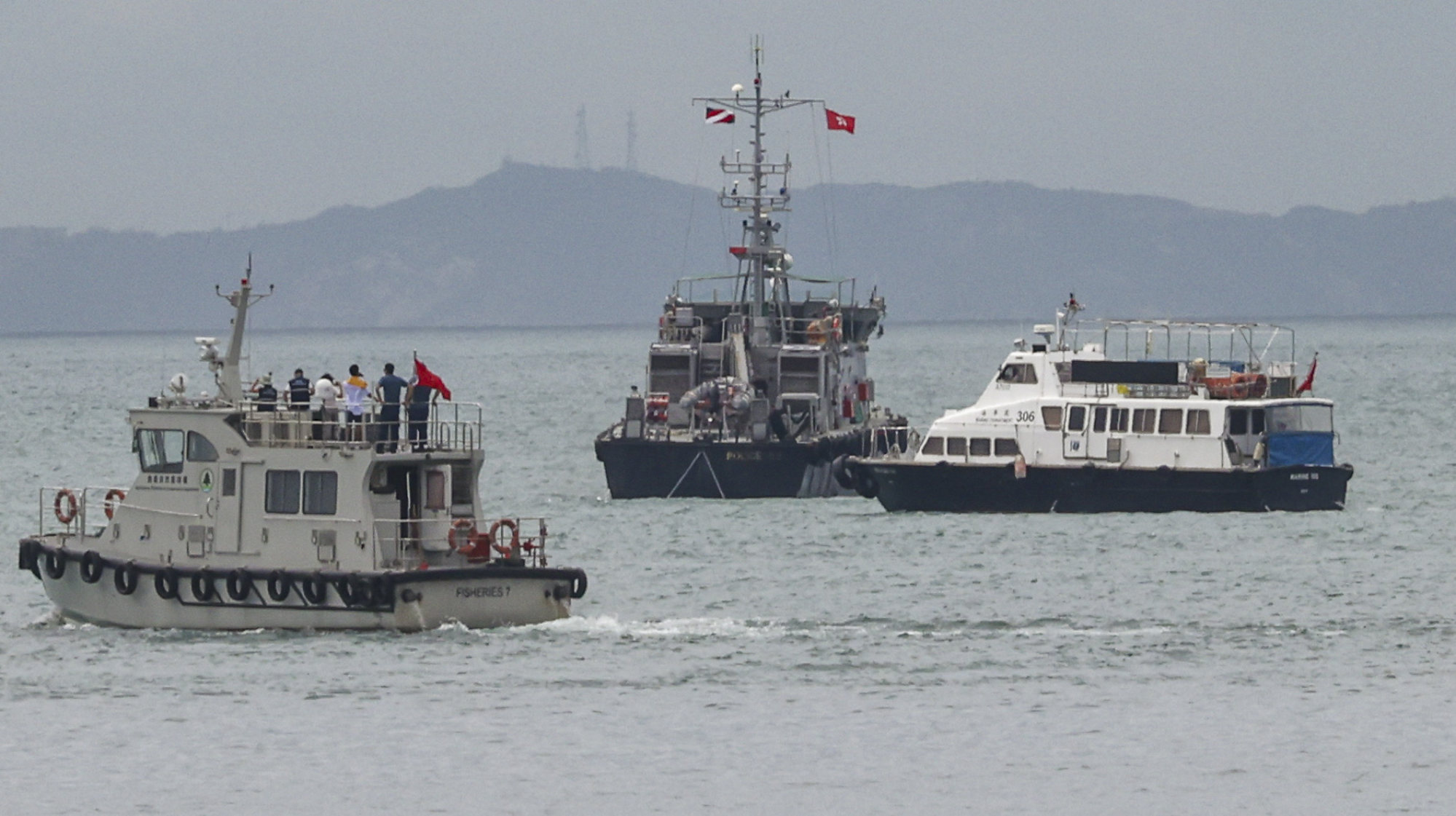
New Hong Kong whale visitor found to have several head injuries; public warned to steer clear of marine mammal as fears for its health mount
- Whale, spotted on Monday, found to have several injuries to its head after it was photographed on Tuesday
- Animal, which could be a pygmy sperm or dwarf sperm whale, tracked down by air patrol in waters off Southern district
A whale spotted in Hong Kong waters was found to have several head injuries, aerial photographs revealed on Tuesday, sparking fresh warnings for the public to leave the animal alone.
A marine mammal expert and authorities said people should keep away from the injured cetacean as concern for its health and welfare mounted.
The animal, which the Hong Kong Dolphin Conservation Society said could be a pygmy sperm whale or a dwarf sperm whale, was tracked down in waters off Southern district after it was first spotted in the same area on Monday.
Aerial photographs from a joint search effort by the Agriculture, Fisheries and Conservation Department and Ocean Park, with helicopter support, showed several wounds on the whale’s head.

“It is uncommon to see these species here,” society vice-chairwoman Viena Mak Hei-man said. “They don’t usually come to waters like Hong Kong’s, which are relatively shallow.
“It could have got lost, or maybe it has health issues. That is why they are appearing somewhere they don’t usually go.”
The photographs showed the whale was still in Southern district waters and authorities warned that if anyone came across it, they should keep at least 100 metres (328 feet) away, slow their boat’s speed and leave the location as soon as possible or they would face legal action.
The news came after police boats and Marine Department vessels, as well as experts from Ocean Park and a government helicopter, mounted patrols of the Deep Water Bay area in a bid to track down the whale.
Ocean Park appealed to the public to “refrain from taking to the waters for a glimpse of the cetacean”.
Second whale spotted in Hong Kong waters, with marine police searching for mammal
Mak backed Ocean Park’s appeal and agreed the public should leave the whale alone.
“There are many uncertainties at the moment and Hong Kong is not a suitable habitat for the whale,” she said.
“The disturbance caused by people and the increase in the number of vessels would cause stress and make it more difficult for the whale to leave Hong Kong waters.”
A Bryde’s whale was spotted off the city on July 13, but police and government departments did not remind the public to avoid taking out boats in the hope of catching a glimpse of the creature until almost two weeks after it was sighted.
The eight-metre cetacean was found dead on July 31. It had suffered several wounds thought to have been caused by propellers.
Mak said the city’s southern waters had the type of food that the latest whale visitor could feed on, even though they are not often seen in Hong Kong waters.
“Pygmy sperm whales or dwarf sperm whales feed on cephalopods. So if it is near Deep Water Bay, there should be food for them,” she said.
Hong Kong to review protection of wild animals after whale hounded by tourists dies
The two types of whale are toothed and feed on fish, squid and other marine mammals, such as seals and sea lions.
The Bryde’s whale seen earlier belonged to the baleen category, which eats by sieving prey, such as krill, from the water through fibrous plates similar to combs.
Authorities on Monday said the public should not approach or try to chase down the latest whale and warned they would take action against anyone who refused to cooperate.
“Members of the public should not go on boat trips to watch or pursue whales sighted in Hong Kong waters,” the Agriculture, Fisheries and Conservation Department warned.
“In case whales are spotted at sea, they should keep a distance of no less than 100 metres, slow down their vessels and leave as soon as possible. Otherwise, government officers may take enforcement action.”

